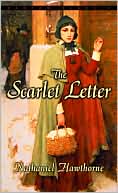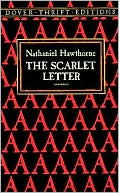So Long!: Walt Whitman's Poetry of Death
Search in google:
Explores Whitman’s intimate and lifelong concern with mortality and his troubled speculations about the afterlife.Walt Whitman is unquestionably a great poet of the joys of living. But, as Harold Aspiz demonstrates in this study, concerns with death and dying define Whitman’s career as thinker, poet, and person. Through a close reading of Leaves of Grass, its constituent poems, particularly “Song of Myself,” and Whitman’s prose and letters, Aspiz charts how the poet’s exuberant celebration of life—the cascade of sounds, sights, and smells that erupt in his verse—is a consequence of his central concern: the ever-presence of death and the prospect of an afterlife.So Long! devotes particular attention to Whitman’s language and rich artistry in the context of the poet’s social and intellectual milieus. We see Whitman (and his many personae) as a folk prophet announcing a gospel of democracy and immortality; pondering death in alternating moods of acceptance and terror; fantasizing his own dying and his postmortem selfhood; yearning for mates and lovers while conscious of mordant flesh; agonizing over the omnipresence of death in wartime; patiently awaiting death; and launching imaginary journeys toward immortality and godhood.By exploring Whitman’s faith in death as a meaningful experience, we may understand better how the poet—whether personified as representative man, victim, hero, lover, or visionary—lived so completely on the edge of life. Harold Aspiz is Professor of English Emeritus at California State University, Long Beach, and author of WaltWhitman and the Body Beautiful.Library JournalIn this first-ever monograph dedicated solely to the analysis of death in Whitman's poetry, Aspiz (English, emeritus, California State Univ.; Walt Whitman and the Body Beautiful) follows Whitman's perception of death and immortality through the chronological progression of his poetry with each edition of Leaves of Grass. By including views about the afterlife from many of Whitman's contemporaries and the poet's prose and correspondence, Aspiz not only enriches his argument but also provides a fuller understanding of Whitman the thinker. To further emphasize Whitman's consistent theme of death and confidence in an immortal soul, Aspiz provides a close reading of Whitman's key poems, including the celebrated "Song of Myself" and "Drum Taps," convincing us that the poet's democratic life theme carries over into a democratic death. This work is by no means an easy read, nor is it as accessible to the lay reader as, for example, Ezra Greenspan's Cambridge Companion to Walt Whitman. However, since it offers the most exhaustive discussion of Whitman's position as a poet of death to date, graduate or faculty-level readers are sure to embrace it. Recommended for academic libraries with strong literary collections.-Paolina Taglienti, New York Acad. of Medicine Copyright 2004 Reed Business Information.
PrefaceIntroduction: "Great Poems of Death"11"Triumphal Drums for the Dead": "Song of Myself," 1855332"Great Is Death": Leaves of Grass Poems, 1855773"The Progress of Souls": Leaves of Grass, 1856984"So Long!": Leaves of Grass, 18601265"Come Sweet Death!": The Drum-Taps Poems, 1865-18661616"Sweet, Peaceful, Welcome Death": Leaves of Grass, 1867-1892206Notes245Bibliography277Index289








